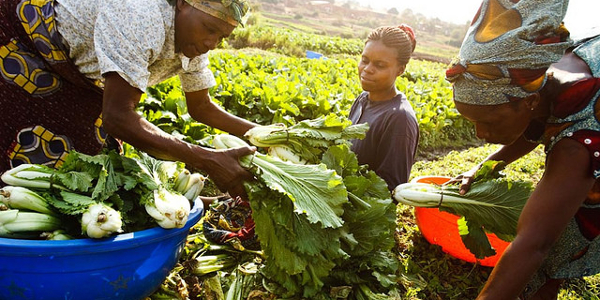Pope Francis Urges U.S. and North Korea to Step Away from the Brink
"I call on them, and I will call on them, as I have on leaders of different places, to work to resolve their problems through diplomatic avenues," Pope Francis said, speaking aboard his plane as he returned to Rome from a trip to Egypt. Noting that North Korea's missile program was not a new concern, he added that "things have gotten too hot" and suggested that "the United Nations has the duty to reassume, a little, its leadership because it's been watered down."
During a 30-minute news conference on his plane, Francis, steadying himself through rough turbulence, touched on a number of topics. He said he still had not received a request for a meeting with President Trump; he defended his appearance with the authoritarian president of Egypt, Abdel Fattah el-Sisi; and he again called refugee camps in Europe "concentration camps."
Francis partly deflected a question about how he would advise French Catholics taking part in next month's presidential election, especially with Marine Le Pen, a far-right candidate with an anti-immigrant platform, on the ballot.
The pope said he did not know enough about French politics to respond, but, he said, "Europe is in danger of breaking apart, this is true." He noted that the migrant crisis fueled fears that destabilized the Continent, "but we mustn't forget that Europe is made
Mr. Trump is scheduled to make his first trip abroad as president in May. His exact itinerary is unclear, but he is expected in Taormina, Sicily, for a meeting of the world's leading economic powers at the end of the month. A visit with the pope is standard for American presidents traveling to Italy, but the two world leaders have a rocky history.
In February 2016, Francis responded to a question about Mr. Trump by saying, "A person who thinks only about building walls, wherever they may be, and not building bridges, is not a Christian."
The pope's view does not seem to have changed. In one of his Cairo speeches, Francis said: "Demagogic forms of populism are on the rise. These certainly do not help to consolidate peace and stability."
All of that has led to doubts about whether a meeting will actually happen. During a news conference at the White House this month with Prime Minister Paolo Gentiloni of Italy, Mr. Trump said, "I look very much forward to meeting the pope." Immediately after, Mr. Trump's spokesman, Sean Spicer, acknowledged that no meeting had been scheduled.
That was still the case as of Saturday evening.
"I still haven't been informed by the secretary of state that a request has been made," the pope said, "but I meet every head of state who asks for an audience."
Francis began the day celebrating an open-air Mass outside Cairo. He told a crowd of 15,000 people who had filled about half of the locked-down Air Defense Stadium that "the only fanaticism believers can have is that of charity."
"Any other fanaticism does not come from God and is not pleasing to him," he said.
The pope's message echoed his strong and extensive remarks during the first day of his two-day trip to Egypt, when, in one of the most influential centers of Sunni Islamic learning, he spoke out against radicalism and the use of religious language as a cloak for terrorism and violence.
On Saturday, he continued in that vein, saying that true faith required "first crucifying our narrow notions of a God who reflects only our own understanding of omnipotence and power."
"It is better not to believe than to be a false believer, a hypocrite!" he added.
People in white hats emblazoned with the message "Pope of Peace in Egypt of Peace," waved Egyptian flags and released yellow and white balloons, representing the Vatican colors. Above them, military helicopters circled and Republican Guards in dark camouflage patrolled the perimeter.
"I'm so happy," said Nabil Shoukry, 55, who wore a scarf adorned with an image of Francis' face. Mr. Shoukry, a Coptic Orthodox Christian, said he was taking part in the event "for praying."
That has been a courageous act for Coptic Christians of late, as suicide bombers have attacked their churches, killing scores of worshipers. Francis mourned those victims on Friday night in a haunting ceremony at a cathedral. Saturday's open-air Mass took place far east of Cairo, amid long arid stretches of rock, garbage piles and desert in the June 30 Stadium. The stadium is named in honor of the 2013 street protests that preceded Mr. Sisi's ouster of his predecessor, who was supported by the Muslim Brotherhood, and the military takeover of the country.
Antonios Aziz Mina, a Coptic Catholic bishop of Giza, called the pope's visit a blessing that showed solidarity with Egypt's Christians, especially those killed in recent months by Islamist extremists. But the bishop showed similar deference to Mr. Sisi, who has cracked down on civil rights and dissent in Egypt, often with the support of the country's Christian leaders.
"If the Muslim Brotherhood were still around, where would we be?" he said. "We were saved by the skin of our teeth. The Christians and the Muslims, Sisi saved us all."
On his plane hours later, Francis suggested that his visit to Egypt should not be interpreted as a sign of support for Mr. Sisi. He did not intervene in local politics, the pope said.
"I speak of values," Francis explained, adding that everyone could judge if the country "brings those values forward."



 In its deliberations over which projects to fund, the international climate community has not prioritised Africa and has largely ignored agriculture, Africa's biggest source of jobs and a crucial contributor to human welfare on the continent.
In its deliberations over which projects to fund, the international climate community has not prioritised Africa and has largely ignored agriculture, Africa's biggest source of jobs and a crucial contributor to human welfare on the continent.



